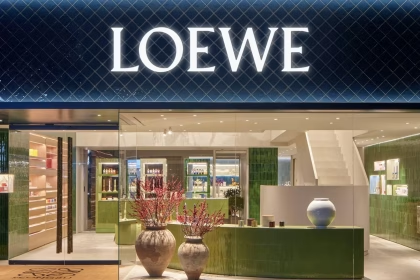Renewcell, a Swedish company known for its innovative textile recycling technology, has filed for bankruptcy. Despite being a pioneer in the industry and opening the world’s first large-scale textile-to-textile recycling plant in late 2022, Renewcell struggled financially. The company could not secure sufficient financing after experiencing several quarters of declining sales, which ultimately led to its decision to file for bankruptcy at the Stockholm District Court.

The bankruptcy announcement came as a significant blow to the sustainable fashion movement, as Renewcell had established partnerships with major fashion brands such as H&M, PVH, and Levi’s®. These collaborations aimed to replace virgin materials like cotton and wood pulp with Circulose®, Renewcell’s recycled material that can be reused multiple times without quality loss.
The textile process on the website describes it as, “CIRCULOSE® is a branded dissolving pulp that we make from 100% textile waste, such as worn-out jeans and production scraps. Fiber producers use dissolving pulp to make viscose, lyocell, modal, acetate other kinds of biodegradable regenerated fibers (also called man-made cellulosic fibers).”
“These fibers are then spun into yarns, woven or knitted into fabrics and finally cut and sewn into new high-quality textile products.”
:The only difference with Circulose® is that they are made from textile waste instead of new cotton, oil or wood.”

H&M, in particular, had been a key partner and investor in Renewcell since 2017 and even held a 10.37% stake in the company. H&M’s commitment to sustainability includes a goal to use only recycled or other more sustainable materials by 2030, and the partnership with Renewcell was a step towards achieving this target.
Despite securing 100 million Swedish krona (approximately $9.8 million) in short-term funding from top shareholders including H&M and Girindus’s incubator arm Girincubator in December 2023, Renewcell cautioned that these funds were merely a stopgap solution. The financial challenges persisted, and the company’s Q3 earnings report showed a net loss of 94.5 million Swedish krona, following a Q2 2023 net loss of 105.4 million Swedish krona.
The bankruptcy of Renewcell is not only a setback for the company’s employees, shareholders, and stakeholders but also highlights the broader challenges faced by the fashion industry in transitioning to more sustainable practices.

















